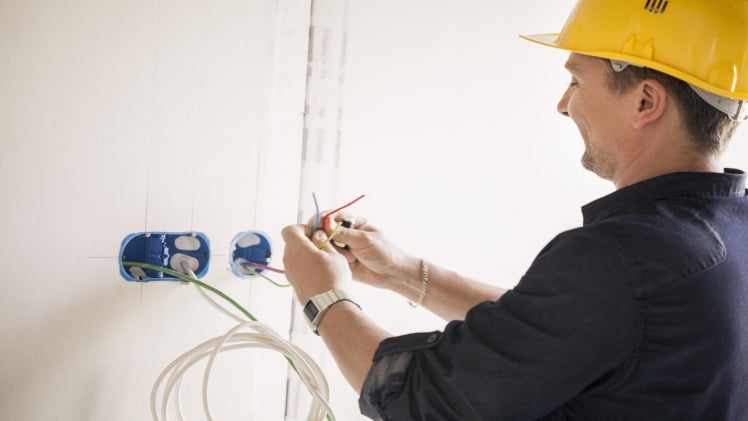Electric panels are central to a home’s electrical system, distributing electricity to various circuits within the property. However, many homeowners might need to realize the impact an electric panel upgrade or installation can have on their home insurance. An outdated or insufficient panel can increase the risks of electrical fires or damage, potentially affecting your insurance premiums or coverage. As homeowners consider improving their electrical systems, it’s essential to understand how https://goheronow.com/maryville-tn/electrical/ electric panel installations interact with home insurance policies. We will explore these connections and provide helpful insights into the considerations homeowners should consider.
Understanding Electric Panel Installation
Electric panel installation, often called a breaker box or circuit breaker panel, is crucial for any residential electrical system. These panels act as hubs that distribute electricity from the main power line to various circuits throughout the home. Over time, homes can outgrow their electrical panel capacity, necessitating an upgrade or a new installation. This is especially true for older homes that are not designed to support modern electrical loads like air conditioning, heating systems, and smart appliances. When the electrical panel is inadequate, you may notice flickering lights, tripped breakers, or even unusual smells, all indicating that an upgrade might be necessary.
Upgrading or installing a new electric panel comes with benefits beyond functionality. A newer panel increases the safety of your home by reducing the risks of electrical fires. Modern panels can handle more considerable electrical demands, providing stability and efficiency in energy distribution. An adequately installed panel also aligns with local building codes, which is essential when selling your property. However, this installation is a complex process that involves rewiring and must be done by a licensed electrician to ensure it is safe and up to code. Incorrect installation can result in numerous problems, from malfunctioning circuits to potential fire hazards. Therefore, adequately understanding the process and planning is essential for homeowners considering an electric panel upgrade.
Impact on Home Insurance
Homeowners may need to know that installing or upgrading an electric panel can directly impact their home insurance. First, insurance companies assess the risk factors within a home to determine premiums. If a home has an outdated electrical panel, such as a fuse box or a low-capacity breaker, it increases the likelihood of an electrical malfunction or fire. This risk can lead to higher premiums, or, in some cases, insurance companies may refuse to provide coverage until the electrical system is updated. Upgrading your electric panel can lower the risks associated with electrical fires, which might result in lower insurance premiums.
Home insurance providers generally reward homeowners who reduce risks, including upgrading their home’s electrical systems. Newer electrical panels that meet current safety standards show that a home is less prone to electrical issues, and insurance companies often acknowledge this by offering discounts on premiums. However, it’s important to communicate with your insurance provider before and after installation. Some companies might require specific panel types or licensed installations to qualify for reduced rates. Additionally, suppose the electric panel installation is part of a larger renovation. In that case, it may be necessary to increase your home’s overall coverage to account for the higher value of the property post-renovation.
It is also worth noting that if the electric panel installation needs to be correctly done or comply with local codes, it can cause problems with insurance claims. Should an electrical fire occur due to improper installation, insurance companies might deny the claim if it is found that a licensed professional didn’t install the electric panel or didn’t meet safety standards. This makes it critical for homeowners to ensure all work is properly and thoroughly documented.
Ensuring Compliance with Building Codes
One of the most important aspects of electric panel installation that homeowners must understand is the importance of compliance with building codes. These codes ensure that all electrical installations meet safety standards that protect the home from fire hazards, electrical shock, and other potential dangers. When installing or upgrading an electric panel, homeowners must ensure the work is done according to local and national electrical codes. Failing to comply with these codes can result in several consequences, including fines, the need for costly repairs, and, most importantly, a higher risk of electrical accidents.
Building codes are updated periodically to reflect changes in technology and safety standards. Homes with older panels may no longer meet current codes, and during a sale, an inspection may reveal the need for an upgrade to meet these requirements. When homeowners install a new panel, the electrician must follow these codes. Some compliance aspects include using the correct panel type, installing proper grounding, and ensuring all circuits are appropriately labeled. Homeowners should also remember that some insurance companies may not cover damages from electrical fires if the installation isn’t code-compliant, so it’s crucial to confirm that all work is done according to regulations.
Electric panel installation is a practical upgrade for better energy management and safety and plays a significant role in your home insurance. Upgrading your electric panel can reduce the risk of electrical hazards and lower your insurance premiums. However, following local codes, working with licensed professionals, and keeping open communication with your insurance provider is crucial to ensure the installation is covered. Ensuring compliance and proper documentation will protect your home and investment, providing peace of mind for homeowners looking to upgrade their electrical systems.


